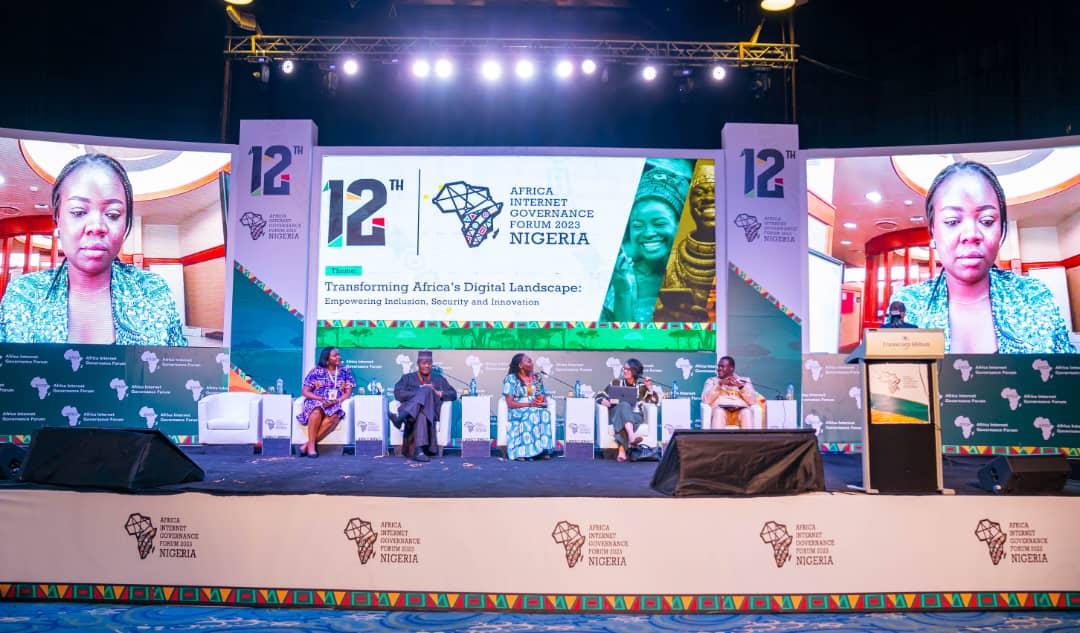The 12th Africa Internet Governance Forum (AFIGF), held under the theme “Transforming Africa’s Digital Landscape: Empowering Inclusion, Security, and Innovation,” concluded in Abuja, Nigeria, with a crucial revelation.
AFIGF identified cybercrime as a significant threat to Africa’s digital transformation strategy, echoing concerns about its impact on the continent’s progress.
In a unanimous recommendation, AFIGF called upon governments across Africa to urgently escalate their investments in cybersecurity. The forum emphasized that cybercrime posed a potential threat to the successful implementation of the Africa Union (AU) 2063 agenda and its digital transformation strategy.
AFIGF urged the AU and African governments to allocate sufficient resources to combat cybercrime effectively. This included fostering international cooperation and providing capacity-building for lawmakers, enforcement agencies, the judiciary, and other relevant stakeholders.
Read also: South African firms grapple with escalating cybercrimes
Bridging the Digital Divide and Developing a Skilled Workforce
AFIGF raised concerns about the reactive nature of Africa’s digital workforce strategy. Participants stressed the need for immediate investment to bridge the digital divide and cultivate a skilled workforce capable of driving innovation. They emphasized the importance of delving into Artificial Intelligence (AI) and nurturing digital solutions rooted in African datasets. Customizing AI models to address the region’s specific challenges and opportunities was deemed essential.
The forum highlighted a critical gap in AI research on the continent. While AI research has flourished globally, there has been a dearth of research tailored to the unique characteristics of African cultures and people. This gap stifles the ability to develop solutions that resonate with Africa’s rich diversity. Addressing this gap in AI research was deemed essential for the continent’s digital advancement.
The Vision for Inclusive and Secure Internet
Hon. Samuel George, Secretary General of AIGF and a member of the Ghanaian Parliament, underscored the need for an inclusive, safe, and secure internet for all African citizens. He emphasized that achieving this goal required collaborative efforts to build an Africa that welcomes everyone. George argued that creating an enabling environment, enacting appropriate laws, and providing digital infrastructure were crucial steps toward promoting indigenous and local content development in technological innovation.
George expressed gratitude to various entities that contributed to the success of the forum. He acknowledged the vital roles played by the African Union Commission, the Federal Government of Nigeria, the Africa IGF Secretariat, and the Federal Ministry of Communications, Innovation, and Digital Economy. He also thanked the Nigerian Communications Commission (NCC), partners, and stakeholders who supported the event.
Kaspersky provides threat intelligence to INTERPOL to curb cybercrime
Creating an Enabling Environment for Digital Transformation
Prof. Umar Danbatta, Executive Vice-Chairman of NCC, emphasized the importance of creating enabling laws, institutional changes, and digital public infrastructure to drive Africa’s digital transformation. He noted that responsive laws and institutions were essential to address the evolving landscape of the internet, including advances in AI, blockchain technology, 5G, and telecommunications. Danbatta underscored the role of human capital in ensuring digital transformation permeates all sectors of the economy and governance.
The event, a United Nations initiative hosted by the Nigerian Communications Commission (NCC) on behalf of the Federal Government of Nigeria, received support from various stakeholders. Partners included the Africa Union (AU), Ministry of Communications, Innovation, and Digital Economy, Nigeria Internet Governance Forum (NIGF), United Nations Economic Commission for Africa (ECA), and sponsors such as MTN Nigeria, Huawei, Meta, Foreign and Commonwealth Office, Internet Exchange Point of Nigeria (IXPN), German Cooperation, and Internet Corporation for Assigned Names and Numbers (ICANN).
Convergence of African ICT Leaders
The 12th AFIGF served as a convergence point for political leaders, intellectuals, and ICT experts from across the African continent. It provided a platform for collaborative discussions, recommendations, and strategies to address the pressing challenges and opportunities in Africa’s digital transformation journey.




